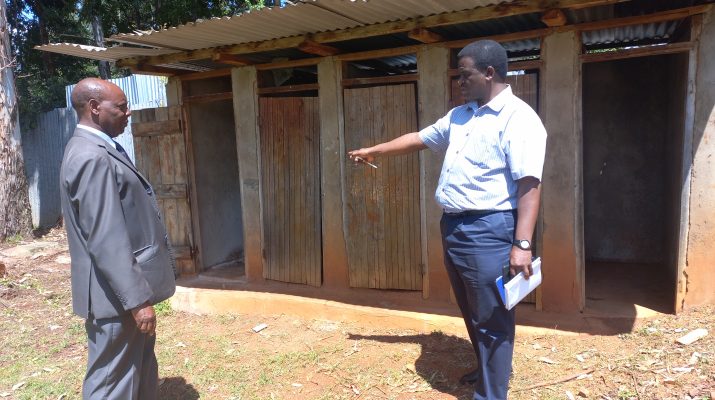The recent temporary closure of Mukumu Girls’ School due to health-related issues that resulted in the unfortunate deaths of several students and a teacher has raised concerns about the overall health standards in boarding schools nationwide.
In response to the tragedy, the Ministry of Education has taken action by instructing sub-county heads of education in partnership with public health officers to conduct comprehensive health checks in all boarding schools to ascertain their health standards and ensure the safety and well-being of students.
Gucha Sub County, renowned for its commitment to education in the region, is currently grappling with a deplorable state of boarding schools. While the classroom areas remain well maintained, a closer look reveals numerous issues that compromise students’ welfare and educational experience.
Overcrowded dormitories, unsatisfactory washroom conditions, inadequate facilities for menstrual hygiene, poor kitchen hygiene, and under-resourced laboratories shed light on the pressing need for increased financial support.
Dormitories, the sanctuaries where students rest and rejuvenate, are overcrowded. The limited space forces many students to share beds, leading to discomfort and compromised privacy. As a result, peaceful sleep becomes a luxury rather than a necessity, leaving students exhausted and unable to concentrate on their studies.
In the company of a multi-agency team doing rounds within schools in the sub-county, KNA established that washrooms across many boarding schools in Gucha Subcounty are unbearable and fall far short of acceptable standards. A lack of adequate facilities and maintenance leaves students with unhygienic conditions, compromising their health and overall well-being.
“It is disheartening to witness the daily struggle students face, as necessities like clean and functional washrooms are absent,” Michael Oyinge, the sub-County public health officer, said.
The dire situation extends to the specific needs of female students. With no proper dumping sites for menstrual pads, girls are left to manage their menstrual hygiene in unsanitary conditions. This not only affects their physical health but also has a detrimental impact on their dignity and self-esteem. It was noted that urgent measures must be taken to address this issue to ensure all students have access to clean and private facilities to manage their menstrual needs.
While conducting health checks of all the boarding schools within the sub-county, it was also noted that the kitchen hygiene in many of these boarding schools is deplorable, with a significant number lacking running water and proper smoke exhumation mechanisms. Unsanitary kitchen conditions pose a severe risk to students’ health, as they are susceptible to foodborne illnesses and infections. A safe and hygienic environment should be a priority to protect the students’ health and well-being.
Additionally, laboratories, essential for scientific education, need to be addressed. Poor arrangement and maintenance contribute to substandard quality of education in the sciences. Most labs lack fume chambers and gas chambers, compromising the safety of students during experiments. Students are exposed to unnecessary risks and limited practical learning opportunities without appropriate safety measures.
KNA, however, established school heads burdened with the responsibility of maintaining these institutions attribute the dismal state of boarding schools in Gucha Sub-county to a lack of finances. The cost of necessary improvements and upgrades, coupled with limited funding from government authorities, has resulted in an unfortunate inability to address these pressing issues adequately. They emphasize that the student’s educational experience will continue to suffer without substantial financial support.
The urgency to revamp the boarding school system in Gucha Subcounty cannot be overstated. Relevant stakeholders must recognize the critical role of quality infrastructure and facilities in ensuring students’ well-being and academic success. Immediate action must be taken to address these deplorable conditions and provide a conducive environment for learning and growth.
As the future of our nation lies in the hands of these students, it is our collective responsibility to invest in their education and well-being. Only then can we ensure a brighter future for the children of Gucha Sub-county, fostering an environment where they can thrive and reach their full potential.

